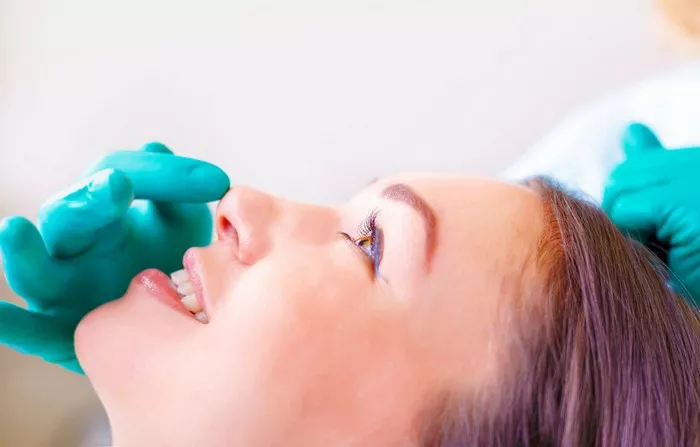Undergoing a nose job, or rhinoplasty, is a common cosmetic procedure chosen by many individuals who desire to alter the shape or size of their nose. While the surgery itself focuses on reshaping the nasal structure, patients often have concerns about how it may affect their daily routine, including eating. It is natural to wonder about post-operative restrictions and whether they will be able to enjoy meals without any complications. In this article, we will explore the topic and provide valuable insights into what to expect regarding eating after a nose job.
Immediate Post-Operative Phase
After a nose job, patients are typically advised to follow specific post-operative care instructions provided by their surgeon. These instructions may vary depending on the extent of the surgery, individual factors, and the surgeon’s preferences. During the immediate post-operative phase, which lasts for a few days, it is common to experience swelling, tenderness, and a feeling of congestion in the nasal area.
The surgeon may place internal splints or packing inside the nose to support the newly reshaped structure and aid in the healing process. These splints or packing can obstruct the nasal passages and make breathing through the nose difficult. As a result, patients are encouraged to breathe through their mouth during this initial recovery phase.
Dietary Considerations
While there are no specific dietary restrictions imposed after a nose job, it is important to consider certain factors to ensure a smooth recovery. Here are some essential points to keep in mind regarding your diet:
Stay Hydrated
Drinking an adequate amount of fluids is crucial for a healthy recovery. Ensure that you consume plenty of water and other hydrating beverages to stay properly hydrated during the healing process. Hydration helps promote overall healing and can alleviate some of the discomfort associated with the procedure.
Choose Soft Foods
During the initial days following your nose job, you may experience difficulty chewing or opening your mouth wide due to swelling and discomfort. Opting for soft foods that require minimal chewing, such as soups, yogurt, mashed potatoes, and smoothies, can be beneficial. These foods provide nutrition while minimizing strain on the jaw and facial muscles.
Avoid Spicy and Hot Foods
Spicy foods can potentially irritate the nasal passages and cause discomfort. Additionally, hot foods and beverages can dilate blood vessels, potentially leading to increased swelling. It is advisable to avoid spicy and hot foods in the early stages of recovery.
Take Smaller Bites
If you experience difficulty opening your mouth wide or find it uncomfortable to chew, taking smaller bites can help make eating more manageable. Cutting your food into smaller, bite-sized pieces can reduce strain on the jaw and minimize discomfort.
Maintain a Balanced Diet
While it may be necessary to modify your diet temporarily during the initial recovery phase, it is crucial to ensure that you still maintain a balanced and nutritious diet. Include foods rich in vitamins, minerals, and protein to support the healing process. If you have any dietary restrictions or concerns, it is advisable to consult with your surgeon or a registered dietitian for personalized recommendations.
Avoid Straws
Using a straw to consume beverages can create suction and pressure that may negatively impact the healing process. Suction can potentially dislodge blood clots or disrupt the surgical site, leading to complications. It is best to drink directly from a cup or glass during the recovery period.
Follow Your Surgeon’s Instructions
Every patient is unique, and individual circumstances may warrant specific dietary recommendations from your surgeon. It is vital to adhere to their instructions and guidelines closely to optimize your recovery and achieve the best possible outcomes.
Long-Term Recovery and Resuming Normal Eating Habits
As the days pass and your recovery progresses, you can gradually reintroduce a regular diet. Swelling and discomfort typically subside, and breathing through the nose becomes easier as the nasal passages heal. However, it is essential to be mindful of your body’s signals and gradually reintroduce challenging foods or eating habits.
If you experience any pain, discomfort, or difficulty while eating, it is advisable to consult with your surgeon. They can assess your progress and provide further guidance based on your specific situation. Remember that each patient’s recovery timeline may vary, and it is crucial to prioritize your well-being throughout the healing process.
Conclusion
While a nose job may require some adjustments to your eating habits during the initial recovery phase, it does not mean you cannot eat at all. Staying hydrated, opting for soft foods, and avoiding spicy or hot foods are key considerations to keep in mind. It is important to follow your surgeon’s instructions and listen to your body as you gradually reintroduce a regular diet. By doing so, you can ensure a smoother recovery and enjoy your meals as you normally would, with your new and improved nose.


